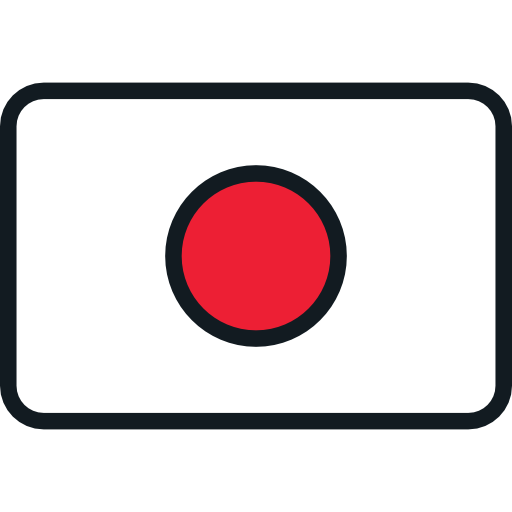Have you heard of the Mozart Effect?
For years, the question of whether music can truly enhance our cognitive abilities has intrigued scientists. It all began with the fascinating Mozart Effect, which initially suggested a correlation between classical music and improved mental performance. Aptly named after the legendary composer, it seemed to provide a temporary boost in IQ test results for those who tuned in to his melody. However, it was later debunked as a mere illusion.
Undeterred by this setback, researchers delved deeper into the realm of music and its impact on our cognitive abilities. Their tireless efforts resulted in a number of discoveries pertaining to different brain waves that develop in our mind, as well as how music and other outside stimuli can help produce certain brain waves. This remarkable effect has the potential to enhance memory, concentration, sleep quality, and even physical activity.
Brain waves
Your brain is a bustling hub of electrical activity. This is due to the fact that the cells in your brain, called neurons, use electricity to communicate with each other.
When a group of neurons sends an electrical signal to another group of neurons, we call those brain waves. This is because a computer-generated electroencephalogram (EEG) test that detects and measures the electrical activity in your brain actually creates a picture that looks like a wavelike pattern.
By harnessing the power of brain waves, we can tap into various states of mind. Introducing the five types of brain waves: alpha, beta, theta, delta, and gamma. Alpha waves bring relaxation, while beta waves stimulate wakefulness. But their benefits don’t stop there. Explore how gamma and beta waves improve focus, while theta and delta waves enhance sleep. Join us on this journey to unlock your brain’s full potential.
Gamma waves
These lightning-fast brainwaves are generated when you’re fully engaged in problem-solving and information processing. They measure over 35 Hz, indicating your brain is firing at its highest frequency.
But gamma waves are not just about speed. They are the key to unlocking rapid insight and high-level information processing. When you enter a deep state of meditation, chances are you’re tapping into the power of gamma brain waves. They are crucial for learning new material and enhancing memory recall.
Beta waves
These are the brain waves that occur most commonly during normal waking consciousness. Experience heightened focus and alertness with these powerful brain waves. Engage in daily activities and make informed decisions while your brain produces high-speed beta waves, measuring between 12 and 35 Hz.
Beta brain waves are often seen during moments of wakefulness, representing logical thinking and critical analysis. Operating within a healthy beta range can boost productivity and attentiveness, but excessive levels can lead to stress and anxiety.
Alpha waves
These brain waves measure between 8 and 12 Hz and are most commonly associated with relaxation. Tap into the mysterious realm between consciousness and subconsciousness to experience deep relaxation and enhance your meditation practice. Stimulate your imagination, improve learning abilities, enhance visualization skills, and boost your memory. These powerful waves are produced by your brain when you’re in a calm and relaxed state, not overly focused on any specific task.
Theta waves
These brain waves measure between 4 and 8 Hz and occur during light sleep or deep meditation. They are most commonly associated with intuition and spiritual connection. Generally, these brain waves only occur briefly as we drift between Alpha and Delta brain waves, but it is during these brain waves that REM sleep occurs.
Delta waves
Experience deep, dreamless sleep and wake up fully rested and restored with the power of delta brain waves. These slowest brainwave frequencies are essential for our body’s healing and restoration process. Delta waves, measuring between 0.5 and 4 Hz, occur when we are in a state of dreamless sleep.
Brain waves for learning
At any time of the day, whether you are asleep or awake, there is electrical activity going on in your brain. The speed at which this electrical activity is occurring can be represented by these five wave types.
But now that we know the names and characteristics of these brain wave types, you might ask yourself what is the best brain wave for my child’s learning?
While some brain waves all brain waves are beneficial for different things: delta waves for restful sleep, theta waves for REM sleep, beta waves for logical reasoning, gamma waves for high speed calculation; the best type of brain wave for learning are actually alpha waves.
Why alpha waves are so important
Alpha brain waves are the perfect balance between alertness and calmness. Unlike being overwhelmed by thoughts or feeling drowsy, alpha brain waves allow your child’s mind to roam freely and energized, allowing them to absorb new information with ease and be significantly more creative.
This link between brain waves and creativity was explored during a 1978 study where alpha brain waves were found to be closely tied to bursts of creative inspiration. Researchers also stimulated the frontal cortex to enhance creativity. Aside from boosting creativity, the alpha state is calming and restorative. It can alleviate symptoms of major depressive disorder and generalized anxiety disorder.
For work performance, the most valuable brainwaves are your alpha waves. It’s like being in a work hypnosis state, fully engaged yet happy and relaxed as you efficiently meet deadlines.
Stimulating alpha waves
So alpha waves are great for studying. However, this leads to the question – how can we make sure that our child’s brain is working within this range?
Unfortunately, it is difficult to maintain complete control of how our mind works. Due to several factors including but not limited to tiredness, distractions, and physical health, it is inevitable for brain activity to become unstable.
However, if we can control these external factors, it will be easier to maintain a state of mind that can best facilitate learning.
Try these tips to help your child concentrate and take on new information with ease by stimulating their alpha waves:
Find a mental cue
Just like Pavlov’s dog, the human brain can be conditioned to respond to specific triggers – including alpha wave production. Creating a mental cue before entering a flow state, like a phrase or music, can help your child’s brain remember and respond. Consistent cues can speed up reaching a state of flow.
Try starting every study session with a song that they enjoy, like the “Hello Song”. Consistently singing this song at the start of every study session will allow your child to connect the song with a state of focus.
SHICHIDA at Home has many songs that can help prepare your child for studying. Sign up for the 6-month subscription to browse the full catalogue of songs for your child’s age group.
Check out how SHICHIDA at Home can help develop your child’s cognitive ability from the comfort of your home, all while facilitating that all-important bond between parent and child.
Eliminate all distractions
According to recent research, distractions can cause a loss of focus, taking up to 25 minutes to regain. To achieve hyperfocus, eliminate obstacles by turning off phones, disabling alerts, finding a quiet environment, and removing anything potentially distracting like toys or food. A clean desk is also crucial for optimal concentration.
Find the right time
Identify the two to three-hour high-energy window in your child’s day for deep work by identifying their peak energy levels. This can be in the morning, after lunch, or after dinner. Harnessing alpha waves becomes challenging when tired and low on energy, as willpower and concentration weaken, making your child prone to distractions.
Listen to music
Flow is often compared to semi-hypnosis – and music can aid in achieving it. Choose repetitive tracks, without lyrics (such as classical music). This approach blocks, enhancing focus and entering the alpha state quickly.
SHICHIDA at Home employs a number of alpha wave music tracks during image training activities to enhance your child’s concentration and creativity.
Check out how SHICHIDA at Home can help develop your child’s cognitive ability from the comfort of your home, all while facilitating that all-important bond between parent and child.
Set achievable goals
If your child is having trouble focusing for an hour at a time, break their study time up. To achieve flow, focus on quality over quantity. Set a timer for 15 minutes, attentively engaging in activities and study for the duration of this period before taking a break. Gradually increase the timer until your child can maintain flow for an hour or more.
Stay hydrated
Drinking enough water is a simple yet often neglected way to improve brain performance. With the human brain being 75% water, it requires a constant supply to function optimally and produce alpha waves. Just like topping up oil in an engine, fueling your child’s body with adequate water helps them think 14% faster and maintain focus longer.
Practice controlled breathing and image training
While there are various forms of meditation that promote calm awareness, alpha brain waves can be generated through the practice. Options linked to alpha brain waves include controlled breathing, where children can learn to breathe out through their mouth and in through their nose using deep controlled breaths, as well as image training, where children can learn to close their eyes and conjure images in their mind with prompts.
SHICHIDA at Home teaches your child to practice controlled breathing and image training through fun, guided activities.
Check out how SHICHIDA at Home can help develop your child’s cognitive ability from the comfort of your home, all while facilitating that all-important bond between parent and child.
References
Arnaud, Jourdan. “What Are Binaural Beats and How Can They Help You Focus?” The Los Angeles Film School, 1 July 2022, www.lafilm.edu/blog/what-are-binaural-beats-and-how-can-they-help-you-focus/#:~:text=Beta%20waves%20%E2%80%93%20These%20brain%20waves. Accessed 29 June 2023.
Contributors, Ars. “Music on the Brain: Listening Can Influence Our Brain’s Activity.” Ars Technica, 24 Sept. 2022, arstechnica.com/science/2022/09/can-we-manipulate-our-mental-capacity-with-music/.
https://www.facebook.com/kyledpearce. “Alpha Brain Waves: 10 Ways to Enter the Alpha State of Mind.” Diygenius, 2 Oct. 2022, www.diygenius.com/alpha-brain-waves/. Accessed 29 June 2023.
Larson, Jennifer. “Alpha Brain Waves: What Are They and Why Are They Important?” Healthline, 9 Oct. 2019, www.healthline.com/health/alpha-brain-waves#bottom-line.
Technologies, iAwake. “What Is the Best Brainwave Music for Studying?” IAwake Technologies, 29 July 2018, www.iawaketechnologies.com/what-is-the-best-brainwave-music-for-studying/. Accessed 29 June 2023.








